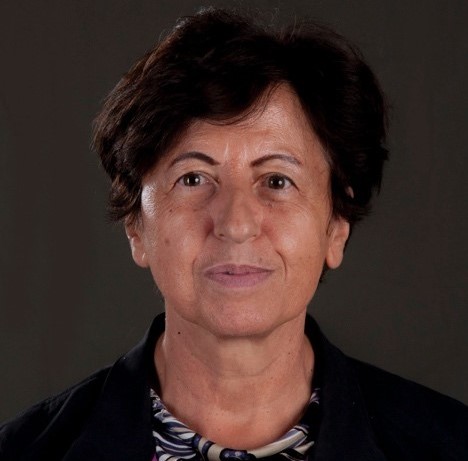IEEE Services 2020 Plenary Events
Opportunities for Data Analytics/Machine Learning Service in the Era of Covid-19
| Title: | Opportunities for Data Analytics/Machine Learning Service in the Era of Covid-19 |
| Date/Time: | Friday October 23, 20:40-22:00 UTC |
| Summary: | The Covid-19 pandemic is a global health crisis which is disrupting the world as we speak by devastating human lives and economic activities. The pandemic has impeded different sectors in every country including agriculture, education, healthcare, manufacturing, sports, and transportation. At the same time, the rapid spread of the virus is engendering a data deluge, which could play a major role in minimizing the impact of the pandemic. These data are generated from contact traces, statistical data such as, number of cases, recoveries, and deaths in a region, scanned medical images, data social media data. It is imperative that the data is managed and utilized properly and securely to gain crucial information about the pandemic. The widespread adoption of machine learning (ML) and artificial intelligence (AI) techniques on many data science applications over the past few years has caused a revolution for scientific advances across multiple disciplines. One of the vital concerns in the data service community nowadays is the security and privacy of data, especially in the healthcare sector. However, the recent emergence of federated learning (FL) has the potential to challenge the data privacy issues with a secure model and data sharing techniques. Using different ML, AI, and FL approaches on the pandemic data, it is possible to figure out necessary prevention and treatment procedures as well as draw inference on the impact of the pandemic. This panel will address the challenges and opportunities of using various secure data analysis techniques from ML and FL during the pandemic and post-pandemic era. Particularly, it will discuss the effect of data analytics techniques on pandemic related data and the inferred knowledge from these techniques, which will help us make progress against the pandemic. |
| Panel Chair: |  Latifur Khan, University of Texas at Dallas Latifur Khan, University of Texas at DallasDr. Latifur Khan is currently a full Professor (tenured) in the Computer Science department at the University of Texas at Dallas, USA where he has been teaching and conducting research since September 2000. He received his Ph.D. degree in Computer Science from the University of Southern California (USC) in August of 2000. Dr. Khan is an ACM Distinguished Scientist and received IEEE Big Data Security Senior Research Award, in May 2019, and Fellow of SIRI (Society of Information Reuse and Integration) award in Aug, 2018. He has received prestigious awards including the IEEE Technical Achievement Award for Intelligence and Security Informatics and IBM Faculty Award (research) 2016. Dr. Latifur Khan has published over 300 papers in premier journals and in prestigious conferences. He has been invited to give keynotes and invited talks at a number of conferences hosted by IEEE and ACM. In addition, he has conducted tutorial sessions in prominent conferences such as SIGKDD 2017, 2016, IJCAI 2017, AAAI 2017, and ACM WWW 2005. Currently, Dr. Khan’s research area focuses on big data management and analytics, data mining and its application over cyber security, complex data management including geo-spatial data and multimedia data. His research has been supported by grants from NSF, the Air Force Office of Scientific Research (AFOSR), DOE, NSA, IBM and HPE. More details can be found at: www.utdallas.edu/~lkhan/ |
| Panelist: |  Elisa Bertino, Purdue University Elisa Bertino, Purdue UniversityElisa Bertino is professor of Computer Science at Purdue University. She serves as Director of the Purdue Cyberspace Security Lab (Cyber2Slab). Prior to joining Purdue, she was a professor and department head at the Department of Computer Science and Communication of the University of Milan. She has been a visiting researcher at the IBM Research Laboratory in San Jose (now Almaden), at the Microelectronics and Computer Technology Corporation, at Rutgers University, at Telcordia Technologies. She has also held visiting professor positions at the Singapore National University and the Singapore Management University. Her main research interests include security, privacy, database systems, distributed systems, and sensor networks. Her recent research focuses on cybersecurity and privacy of cellular networks and IoT systems, and on edge analytics for cybersecurity. Elisa Bertino is a Fellow member of IEEE, ACM, and AAAS. She received the 2002 IEEE Computer Society Technical Achievement Award for “For outstanding contributions to database systems and database security and advanced data management systems”, the 2005 IEEE Computer Society Tsutomu Kanai Award for “Pioneering and innovative research contributions to secure distributed systems”, and the 2019-2020 ACM Athena Lecturer Award. |
| Panelist: |  Sharat Israni, University of California at San Francisco Sharat Israni, University of California at San FranciscoSharat Israni is Executive Director, CTO and Adjunct Faculty at UCSF’s Bakar Computational Health Sciences Institute, which is building UCSF’s next-gen research computing capability. Previously, he was Executive Director, Data Science, at Stanford Medicine. A long-serving Technology executive, Sharat’s teams pioneered the use of “Big Data.” He served as VP of Data at Yahoo! (1999-2008) and Intuit (2010-13), which pioneered “Big” Data Science and the use of Machine Learning to re-invent their products. He led Digital Media systems for broadcast/interactive TV at Silicon Graphics; and Data teams at IBM and HP. Sharat has been PI for NSF, NIH and RCUK workshops on Data Science topics in Biomedicine, and is a frequent peer-reviewer for several journals and conferences. |
| Panelist: |  Ling Liu, Georgia Institute of Technology Ling Liu, Georgia Institute of TechnologyDr. Ling Liu is a Professor in the School of Computer Science at Georgia Institute of Technology. She directs the research programs in the Distributed Data Intensive Systems Lab (DiSL), examining various aspects of large scale big data-powered artificial intelligence (AI) systems, and machine learning (ML) algorithms and analytics, including performance, availability, privacy, security and trust. Prof. Liu is an elected IEEE Fellow, a recipient of IEEE Computer Society Technical Achievement Award (2012), and a recipient of the best paper award from numerous top venues, including IEEE ICDCS, WWW, ACM/IEEE CCGrid, IEEE Cloud, IEEE ICWS. Prof. Liu served on editorial board of over a dozen international journals, including the editor in chief of IEEE Transactions on Service Computing (2013-2016) and currently, the editor in chief of ACM Transactions on Internet Computing (TOIT). Prof. Liu has been given invited keynote speeches in many top tier venues in Big Data, AI and ML systems and applications, Cloud Computing, Services Computing, Privacy, Security and Trust. Her current research is primarily supported by USA National Science Foundation under CISE programs and IBM. |
| Panelist: |  Ying Ding, University of Texas at Austin Ying Ding, University of Texas at AustinDr. Ying Ding is Bill & Lewis Suit Professor at School of Information, University of Texas at Austin. Before that, she was a professor and director of graduate studies for data science program at School of Informatics, Computing, and Engineering at Indiana University. She has led the effort to develop the online data science graduate program for Indiana University. She also worked as a senior researcher at Department of Computer Science, University of Innsburck (Austria) and Free University of Amsterdam (the Netherlands). She has been involved in various NIH, NSF and European-Union funded projects. She has published 240+ papers in journals, conferences, and workshops, and served as the program committee member for 200+ international conferences. She is the co-editor of book series called Semantic Web Synthesis by Morgan & Claypool publisher, the co-editor-in-chief for Data Intelligence published by MIT Press and Chinese Academy of Sciences, and serves as the editorial board member for several top journals in Information Science and Semantic Web. She is the co-founder of Data2Discovery company advancing cutting edge AI technologies in drug discovery and healthcare. Her current research interests include data-driven science of science, AI in healthcare, Semantic Web, knowledge graph, data science, scholarly communication, and the application of Web technologies. |